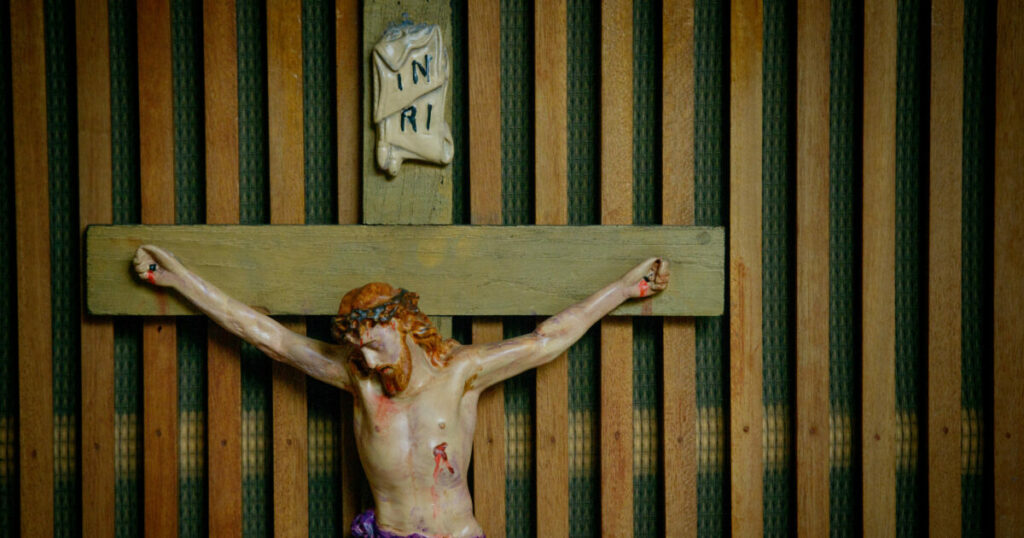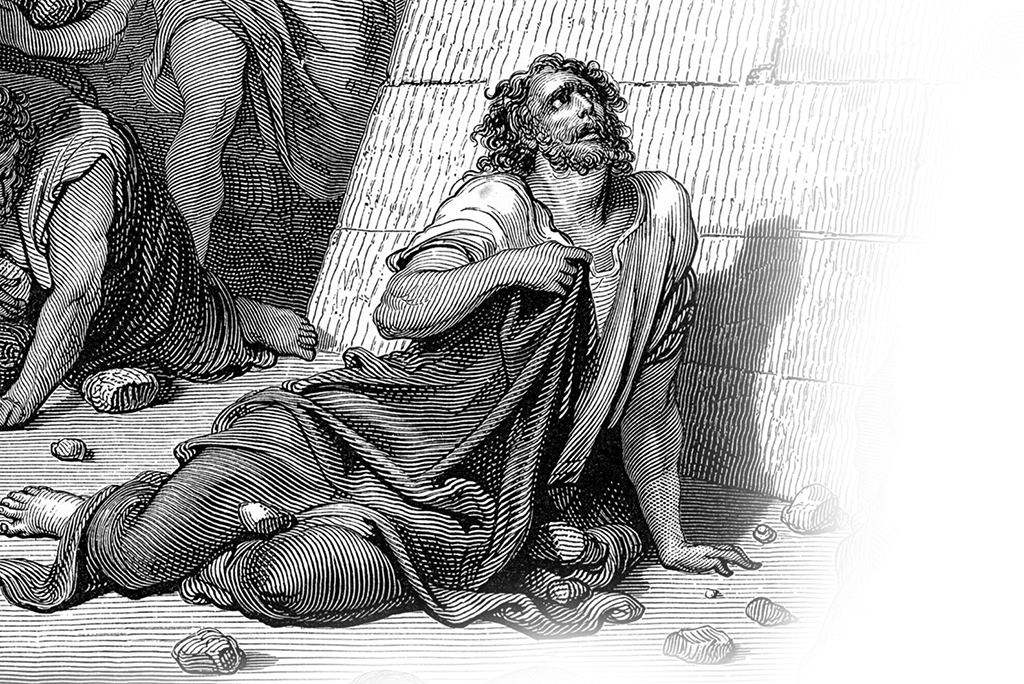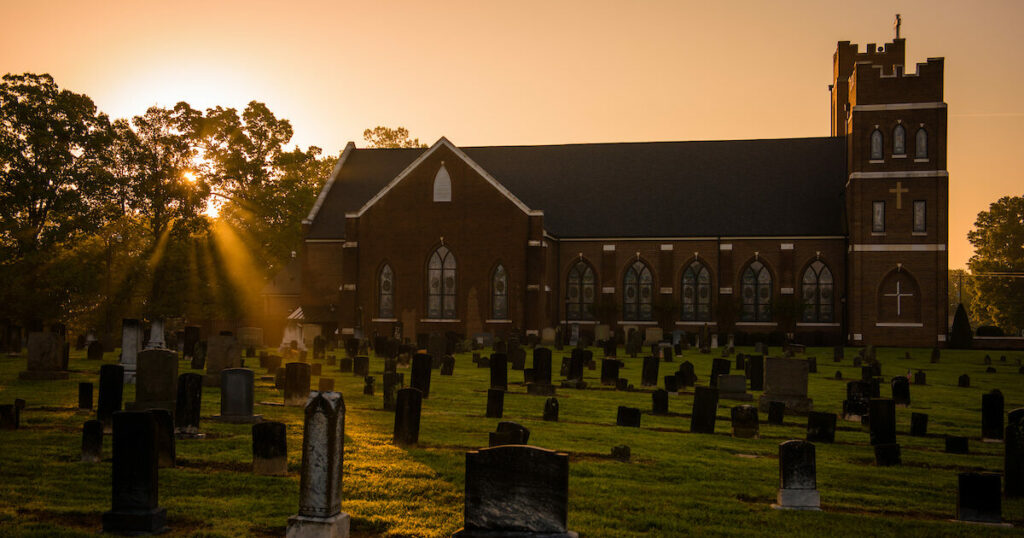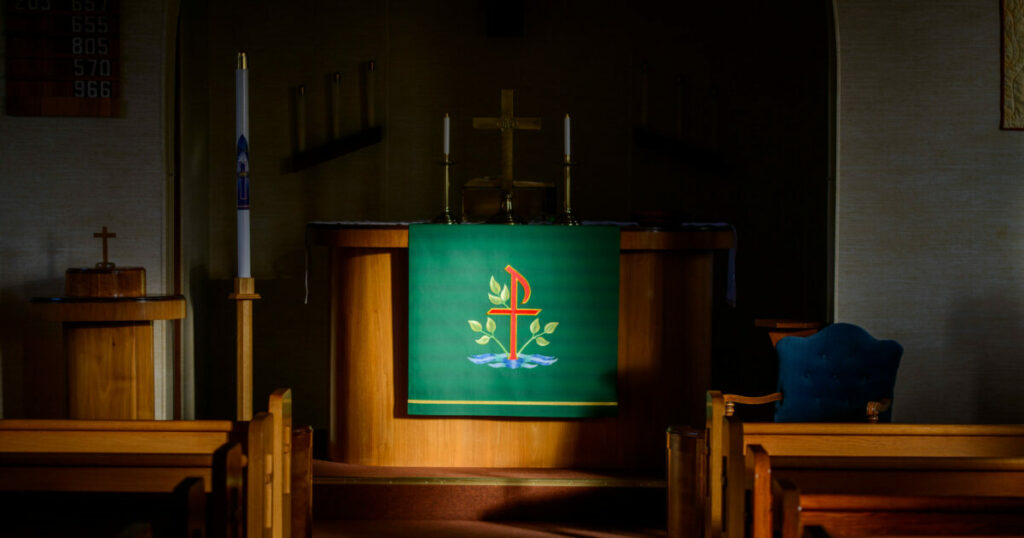by Matthew C. Harrison
Does God will and even cause suffering? Or does He merely “allow” it to happen? Let’s begin with the suffering and cross of Jesus. For the answers to our questions about suffering, so far as we can understand anything at all of what the Bible teaches, begin and end with Jesus.
Did God know from eternity that the Eternal Word, the Second Person of the Trinity, would assume flesh, be born, live, suffer and die for the sins of the world? Certainly so. Revelation 13:8 calls Jesus “the Lamb slain from the foundation of the world.” Already at the fall into sin, God gave the promise, “He [the Christ] shall bruise your [Satan’s] head, and you shall bruise his heel” (Gen. 3:15). The promise was repeated by the prophets, first to last, and many times. The lambs of Passover prefigured Christ. Did God will that those original Passover lambs be sacrificed and their blood mark the doors of the Hebrew people enslaved in Egypt? Quite certainly. He explicitly commanded that it be done. When John the Baptizer pointed to Jesus and said, “Behold, the Lamb of God, who takes away the sin of the world” (John 1:29), was he indicating that the death of Jesus, although foreknown by God, would be effected by the will of men (for example, Judas, Pilate, religious leaders in Jerusalem)? No. There was more.
The answer comes most clearly in Gethsemane. “Father, if you are willing, remove this cup from me. Nevertheless, not my will, but yours, be done” (Luke 22:42). There it is. God the Father wills the suffering of God the Son. Under the pressure of the sins of the world, Jesus seemed to waver. Yet He, “who in every respect has been tempted as we are, yet without sin” (Heb. 4:15), also did not sin at that tense moment. Jesus said, “No one takes [my life] from me, but I lay it down of my own accord” (John 10:18).
So there you have it. God the Father and God the Son willed that the Son should suffer and die. God willed death. God willed suffering. At first, this is disconcerting. Isn’t death a result of sin? Isn’t suffering a result of sin? So, is God the cause of sin? No. God is not the cause and source of sin and death. Yet God Himself makes use of the curse of sin — suffering and death — for His good purposes. In doing so, He most often works in a hidden way. Our life is “hidden with Christ in God” (Col. 3:3). Just think of it. As Christ was dying on the cross, His followers were terrified, distraught, hopeless, helpless. They thought that God had abandoned Jesus, and them. But it was not so. The Father had abandoned Jesus to death for them. The greatest act in the history of the universe appeared to be the most pathetic, powerless and useless failure.
Christians see the world differently. God used affliction to test Abraham by telling him to act contrary to God’s promise that the world would be blessed through Isaac (Gen. 22). God specifically gave Satan permission to all but slaughter Job. Yet against all the evidence that God must hate him, Job replied in faith, “Though he slay me, I will hope in him” (Job 13:15). St. Paul wrote:
“A thorn was given me in the flesh, a messenger of Satan to harass me, to keep me from becoming conceited. … But he said to me, ‘My grace is sufficient for you, for my power is made perfect in weakness.’ Therefore I will boast all the more gladly of my weaknesses, so that the power of Christ may rest upon me” (2 Cor. 12:7, 9).
There are many such passages of God willing suffering for good, but all of them pale next to the cross. And the cross could only be understood after the resurrection.
What’s God doing with COVID-19? One could suggest that sin somehow corrupted a perfect creation to cause some very harmful changes in microbes. St. Paul declares “that the whole creation has been groaning together in the pains of childbirth until now” (Rom. 8:22). Our Lutheran forefathers, from Luther to Walther, never hesitated to preach that disasters and plagues were the just application of the Law upon the world and believers, to do what the Law always does, bring repentance.
Years ago, I was going through a particularly challenging period. (What it was about, I do not recall.) A dear colleague of mine pointed me to the following passage of our wonderful, Lutheran Formula of Concord, confessed by all the congregations, pastors and church workers in the LCMS. I’ve never been able to forget it:
“Furthermore, this doctrine [eternal election] provides glorious consolation under the cross and amid temptations. In other words, God in His counsel, before the time of the world, determined and decreed that He would assist us in all distresses [anxieties and perplexities]. He determined to grant patience [under the cross], give consolation, nourish and encourage hope, and produce an outcome for us that would contribute to our salvation. Also, Paul teaches this in a very consoling way. He explains that God in His purpose has ordained before the time of the world by what crosses and sufferings He would conform every one of His elect to the image of His Son. His cross shall and must work together for good for everyone, because they are called according to God’s purpose. Therefore, Paul has concluded that it is certain and beyond doubt that neither ‘tribulation, or distress,’ neither ‘death nor life,’ or other such things ‘will be able to separate us from the love of God in Christ Jesus our Lord’” (FC SD XI 48–49, emphasis added).
I cannot fully fathom the tiniest portion of what God is up to in this time of crisis. I do know what He did in the cross of Jesus. I do know that He knows what He is doing. I do know that He works His greatest blessings through crosses. I plunge all my questions into the wounds of Christ on Calvary. I know that “he was pierced for our transgressions; he was crushed for our iniquities … and with his wounds we are healed” (Isaiah 53:5). “But one of the soldiers pierced his side with a spear, and at once there came out blood and water” (John 19:34). I plunge my doubts into His hands and His side. I plunge my fears into His blood (Lord’s Supper) and water (my precious Baptism). And I know that through crosses, the Father is conforming “every one of His elect to the image of His Son. His cross shall and must work together for good for everyone.”
–Pastor Harrison

Photo Credit: A crucifix at First Lutheran Church in Boston. LCMS Communications/Erik M. Lunsford





